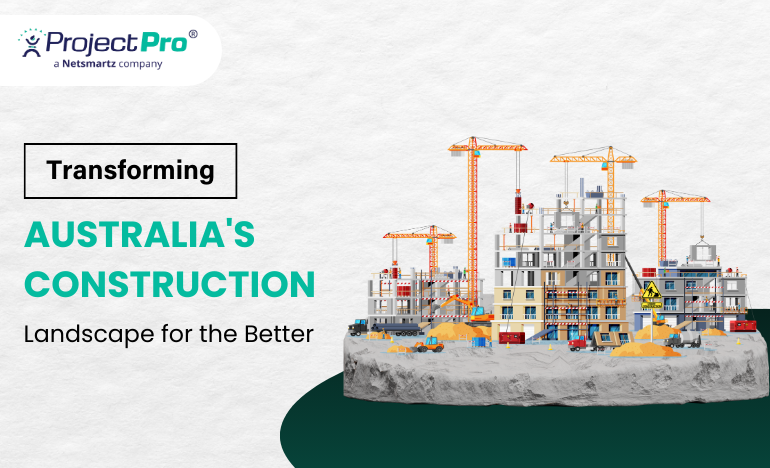Commercial Construction Billings: 5 Best Practices

Besides adopting digital technology, the construction industry also faces challenges with slow payments, expensive overhead, and appropriate credit history for keeping the project moving.
To avoid any financial emergency effectively, follow proper billing practices that ensure invoice accuracy and fast payments. According to a report by JBKnowledge, out of 170 construction companies, 69% reported that their biggest challenge was managing project costs and billing.
Therefore, using the right billing software for your construction business is inevitable.
There are several construction billing types; each describes how payments must be made, the due date, and the outstanding amount. So you need to adapt to the right strategy to help you retrieve timely payments.
This blog will discuss construction's most common construction billing methods and the best practices.
Types of Construction Billing
1. Advanced Billing
Advanced billing is a common construction billing method where the amount of payment is finalized before the project begins. The finalized amount is usually an estimation or lump sum.
This invoicing approach can be complex for the stakeholders in charge of the project. Advanced payments mean clients put a lot of trust in the parties liable for working on the project.
This method can also damage the contractor involved in the build, as projects usually run over budget.
Advanced billing in construction is superior for parties that have functioned together for a prolonged period and have a great relationship, where project deadlines have usually been on-time and on the budget long ago.
2. Arrears Billing
Arrears billing is a unique process used by a project's end. Once all stakeholders have signed and approved the final product, payment is made in a lump sum.
This billing method can be unstable for the contractor as the construction business is hovering over the costs of the job. Contractors will have to pay out of pocket for materials and labor and rely on their clients to pay entirely and on time.
However, it's standard for payments in the construction industry to take weeks or months to be sent out.
3. Progress Billing
Progress billing is the invoicing practice of billing step-by-step throughout a project. More complex than billing before the project begins or after a project finishes, progress billing invoices are created based on the completion percentage of work to date. Payments are made at agreed points in the project completion.
Unlike the generic project details (like percentage complete, date, etc.), progress billing contracts should also have terms that the client and contractors should settle on before the work begins. One term that should not be excluded is a payment schedule.
A payment schedule will summarize the details for when invoices should be submitted and paid and should be clearly stated and agreed upon before the project gets underway.
5 Best Practices for Construction Billing
Now that we've reviewed the three construction billing methods, let's talk about the best billing standards to adhere to improve relations between all parties.
1. Sent invoices in a timely manner
Although it seems like a complicated process, sending timely invoices is crucial. Payments that are usually received late are a result of late invoice delivery.
Perform a simple audit to determine why your invoices are frequently delivered late. Are work specifics being overlooked? Late invoice submission from contractors and subcontractors? If so, use a paperless construction invoice management software to streamline workflow.
2. Invoices should be clear and precise
Invoices must be sent promptly, and they should be accurate and transparent to avoid conflicts.
A lack of detail or unclear writing may cause vague invoices. A lost or misplaced time tracking sheet estimated for billing purposes or manually monitoring project data on paper might lead to inaccurate charges.
Vendor conflicts may arise as a result of any of these disparities. Moving all project tracking online is the most effective method to prevent this kind of conflict.
3. Introduce short-term payments
It's a good idea to keep payment terms reasonable and short when billing for construction. Longer payment terms increase debt ratios, which can destroy a business's finances.
Incorporate 30-day payment terms into your project invoice. This solid yet great payment schedule ought to be feasible for all parties.
4. Reward early payments and collect penalties on late payments
Explore options to maintain payment terms fair and concise. If payments are being made on time, thank the receiver. Make paying you as simple as you can. Think about providing digital payment choices and financing options.
A discount for payments made in full before the due date is a wise move in a sector where late payments are frequent.
On the other hand, it's also crucial to take accountability for late payments. When it comes to construction billing methods, penalties could be taken into account.
A good strategy to promote timely receivables is to add a late payment fee.
5. Take follow-ups
Don't be afraid to check in if your payment is overdue and there are no signs that it is on the way.
Sending a quick ping to follow up and check on how things are doing on their end will be okay, as invoices can easily get missed, lost, or forgotten.
We advise sending an email first to ensure that this initial contact has a timestamp. Try calling them if you have not heard back from them after a few days.
You need to follow up before your payment is overdue. For construction accounting, keeping lines of communication open with your clients and informing them when a payment is due before it is past due can be quite beneficial.
Bottom Line
Managing construction bills can be challenging if you don’t opt for the right strategy or tool. Using the best construction billing software to automate your process is better, ensuring accuracy and saving you time. This is where ProjectPro can help.
ProjectPro is an integrated platform that offers a progress billing feature that’s ideal for the construction industry. To know how ProjectPro works, schedule a demo.




.jpg)


